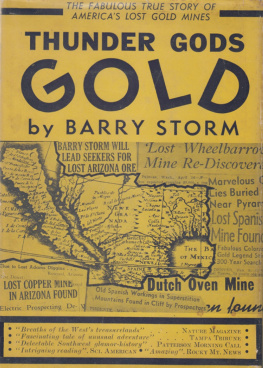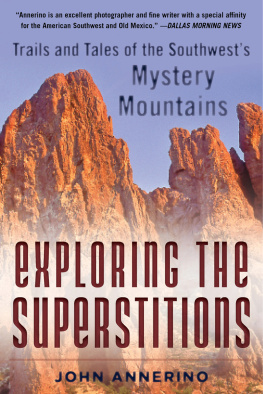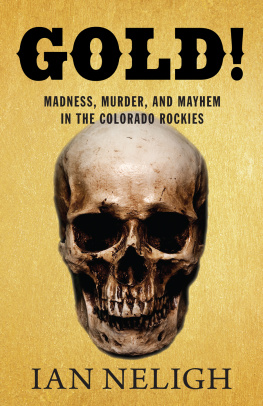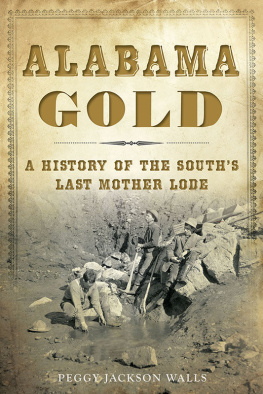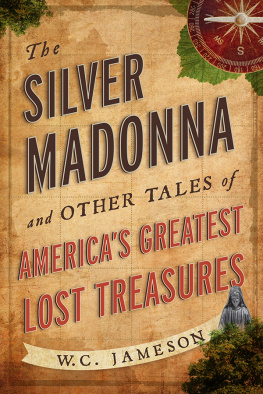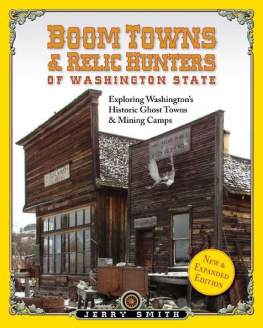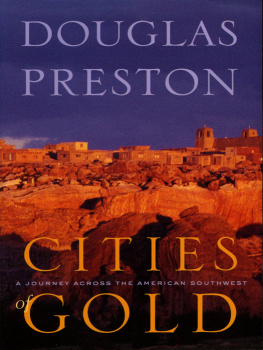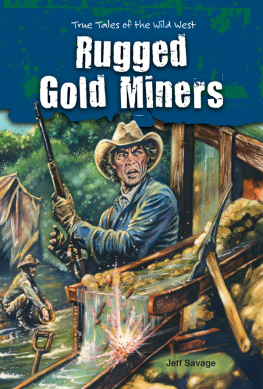Phocion Publishing 2019, all rights reserved. No part of this publication may be reproduced, stored in a retrieval system or transmitted by any means, electrical, mechanical or otherwise without the written permission of the copyright holder.
Publishers Note
Although in most cases we have retained the Authors original spelling and grammar to authentically reproduce the work of the Author and the original intent of such material, some additional notes and clarifications have been added for the modern readers benefit.
We have also made every effort to include all maps and illustrations of the original edition the limitations of formatting do not allow of including larger maps, we will upload as many of these maps as possible.
Ghost Gold
Mystery Legend of Treasure in Superstition Mountain
By
OREN ARNOLD
Ghost Gold was originally published in 1954 by The Naylor Company, San Antonio, Texas.
Preface
True?
Of course these stories are true! For what is truth if not unselfish hope, romance and inspiration? What good is truth if it be matter-of-factual and drab? Richest gold lies not in the mountains but in hearts of men. The fascination of lost gold is not in the finding or even the searching, but in the meditating, the daydreaming, the telling.
Thanks forever, then, to the friends who have gone with me into the wild free hills, and to the countless old timers, prospectors, miners, cowboys, Indians, Mexicans, hunters and happy outdoorsmen in whose hearts this incomparable legend holds sway. Many versions of this Superstition Mountain lost gold history have been told, many proofs presented for this and that. None of them can stand close scrutiny or has full documentation. I have set down the version most loved, most often heard around campfires. No other legend has so gripped the imagination of our people, partly because most of it definitely is true, and all of it is fascinating.
Several years ago a few dozen copies of this legend were published as club souvenirs, then put on sale in Phoenix. Suddenly it was in high demand, and those copies now are a high-priced item for collectors, when they can be found at all. Sustained interest has prompted this revised, popular-priced edition for everyone to enjoy.
OREN ARNOLD
1. For Love of Rosita Maria
CARLOS was a handsome fellow, handsome and young. A little darker than usual, perhaps, and a little sullen at times. Silent and sullen, and very, very jealous. But that, said Rosita Maria, made him all the more charming.
He was not so shallow and obvious as the others. Theywhy they, at the mere flicker of an eyelash, were wanting to have the full measure of loves enjoyment. Carlos, though, was more distant. At the autumn fiesta he had danced twice with her, gallant and formal and of grace itself. But he had spoken few words. Rosita decided sagaciously that he would require a different treatment; she would, therefore, be haughty and cold, even while her lips were carefully provocative. For you, Seor Carlos, a snap of the fingers and a disdainful pouff!
Love, you must understand, was a serious enterprise in those romantic years in old Sonora. In the 1840s, a cattle ranch in Mexico must perforce be a business and a social entity in itself, and the fine art of wooing received as much studied attention as the sterner one of raising cattle. Don Miguel Peralta, Rositas father, was himself a master at both. He, too, could woo!
The old women of the haciendathe Peralta rancho really amounted to a little village clustered about the main house and patio, with its tiny mission theredeclared, for instance, that gallant young Carlos was ill-born, the son of Don Miguel by a pretty chambermaid whom he had adopted into his household. If Rosita knew this she didnt care! Love was not finicky and meticulous in old Mexico: love was just pleasurableah, lilting and laughing and sometimes dangerous, too!
Delicious little vixen that she was, Rosita made slaves of every male creature who visited her fathers patio. She had a trick of nestling her scented hair and forehead right over a mans heart when he was a few years older than she, of slipping her face under his bolero and fingering its braid, while pretending to cry in childish fashion because the nice man was going away. No man could thus refuse to hold her, to comfort her with soft, caressing words. It had never occurred to papa Miguel that Rosita was now a grown young woman. When he eventually did discover that her charms were more than juvenile, he did so in a most exciting manner.
One moonlit evening near the hour of midnight, the watchman atop the ranchhouse tower sat up suddenly alert and peered out into the semi-darkness.
BONG! BONG! He quickly reached back and struck his gong.
The noise it made was violentan alarm that instantly aroused every human being in the village.
In just a few seconds men came pouring out of their huts and houses, strapping on belts of ammunition, loading and clicking their rifles as they ran. Don Miguel himself, a sabre in hand and fully dressed, dashed from his bed chamber into the patio, where a vassal held his charger saddled and stamping to go. But when someone opened the patio gate
Rosita! My daughter!
He drew back in amazement.
As if a hand had been raised for prayer, an abrupt hush settled over the assembled soldiers, the hubbub and bustle of quick mobilization silenced by this incredible vision there in the moonlight.
The tower watchman had not, as might have been expected, seen a band of hostile Indians approaching. His keen eyes had beheld no threatening cavalcade of peon thieves. Thieves did come from time to time; once they swooped down onto women busy at the river laundry, lassoed and carried away three young girls. But no such ominous danger confronted the watchman now.
From the shadows of the willow trees that lined the stream bank, down near the horse corral outside the gardens, he had however seen a lovely maiden running. Running and screaming and obviously very much distraught.
AndMadre de Dios!she was entirely nude!
What the watchman almost failed to see, during the excitement of Don Miguels greeting to Rosita at the patio entrance, was a man hastily lead a horse from the corral, mount it and dash away.
But in a few seconds all the villagers were standing agape, staring at the horseman and listening to the clatter of hoofs as he galloped frantically off to the northward.


